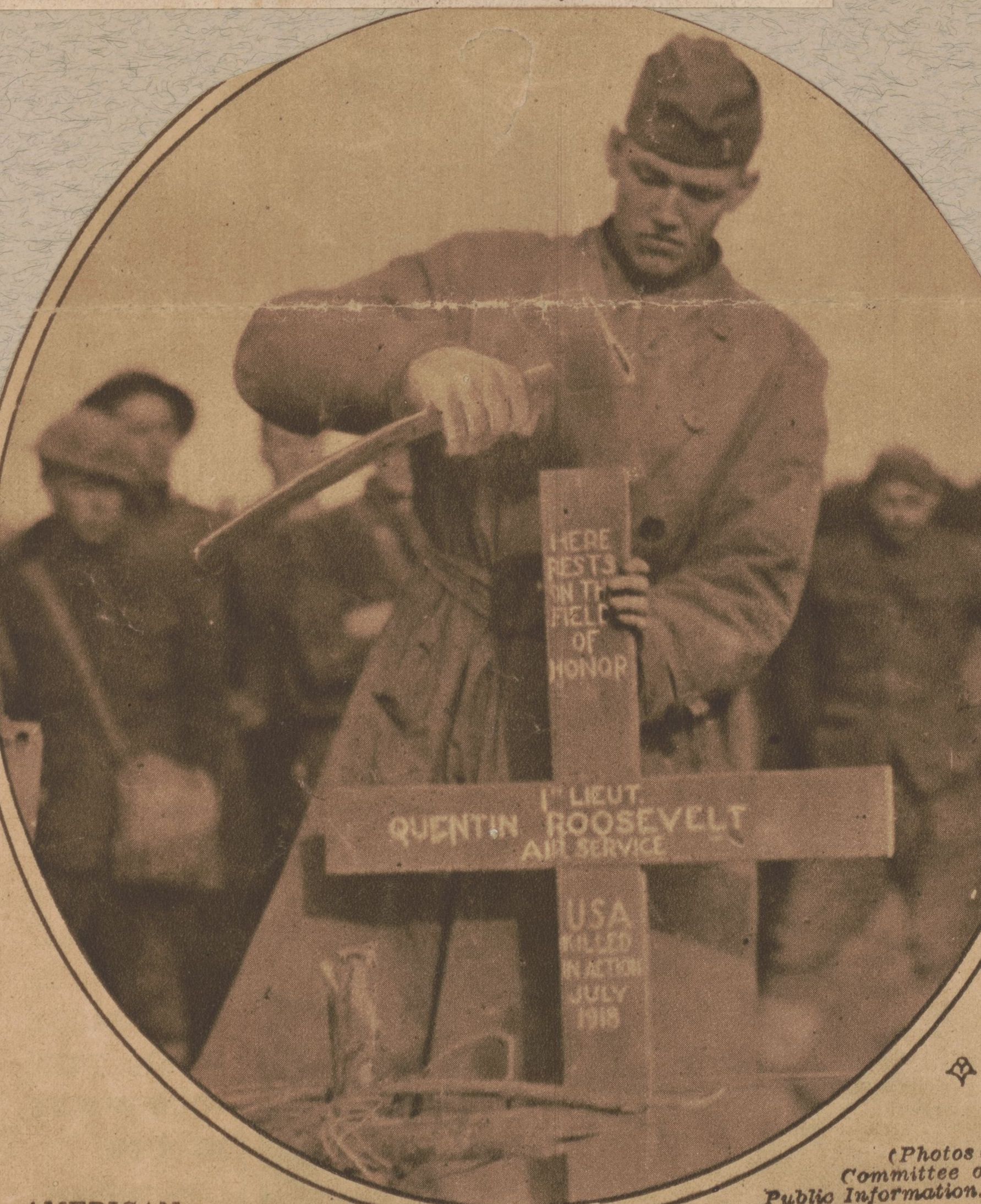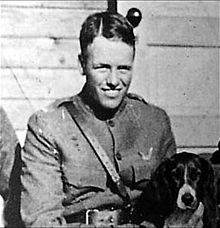Authors:
Historic Era: Era 7: The Emergence of Modern America (1890-1930)
Historic Theme:
Subject:
Fall 2018 - World War I Special Issue | Volume 63, Issue 3


Authors:
Historic Era: Era 7: The Emergence of Modern America (1890-1930)
Historic Theme:
Subject:
Fall 2018 - World War I Special Issue | Volume 63, Issue 3

We choose the cover image of this issue to honor the personal sacrifice of Americans who died on the fields, and in the skies, of Europe 100 years ago, as well as the losses suffered by their families.
In the poignant image, a German soldier hammers on the cross that marks the temporary grave of Lieutenant Quentin Roosevelt, the youngest son of Theodore Roosevelt.
Encouraged by his father and siblings, Quentin signed up for the Army Air Service and became a pursuit pilot during World War I. He was popular with fellow pilots and known for his daring.
At the start of the Second Battle of the Marne, Quentin was shot down behind German lines on Bastille Day, July 14, 1918.

“As President Roosevelt’s son, he had rather a difficult task to fit himself in with the democratic style of living which is necessary in the intimate life of an aviation camp,” recalled Captain Eddie Rickenbacker in his memoirs. “Every one who met him for the first time expected him to have the airs and superciliousness of a spoiled boy. This notion was quickly lost after the first glimpse one had of Quentin. Gay, hearty, and absolutely square in everything he said or did, Quentin Roosevelt was one of the most popular fellows in the group. We loved him purely for his own natural self.”
Quentin was “reckless to such a degree that his commanding officers had to caution him repeatedly about the senselessness of his lack of caution,” wrote Rickenbacker. “His bravery was so notorious that we all knew he would either achieve some great spectacular success or be killed in the attempt. Even the pilots in his own flight would beg him to conserve himself and wait for a fair opportunity for a victory. But Quentin would merely laugh away all serious advice.”
Quentin’s death was a great loss to his father, who realized quite well that he had encouraged his son’s entry into the War. He never fully recovered from Quentin's death and, within six months, was dead himself.
After Quentin's grave came under Allied control, thousands of American soldiers visited it to pay their respects. It became something of a shrine and an inspiration to his comrades in arms.
Quentin is still the only son of an American president to die in combat.